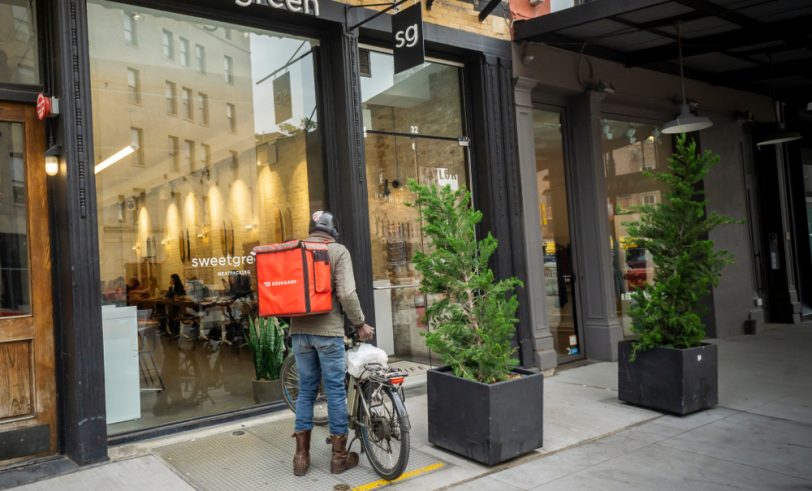A St. Louis Alderman has submitted a board bill that contains a number of measures relating to food delivery services. The part that seems particularly egregious is a mandate that caps delivery fees that third-party delivery services can charge restaurants in the city at five percent. For those unfamiliar, third-party apps like DoorDash and Postmates will deliver food to customers on behalf of restaurants, but they charge restaurants a delivery fee for the service.
This proposal is an attempt to protect local restaurants by giving them a larger share of revenue earned, but it’s a governmental overstep; government should not be involved in these agreements between private businesses.
This excerpt from a St. Louis Post-Dispatch article highlights two important points:
. . . depending on the contract negotiated between an eatery and an app platform, the platforms sometimes charge anywhere from 25% to 50% per item.
The first point is that the contracts were negotiated between a restaurant and a food delivery service, meaning that the delivery rates were agreed upon by both parties. Neither was forced to comply, and either could have backed out if they deemed the deal harmful for their business. Why mandate different rates when the rates were agreed to voluntarily by all parties involved?
This brings us to the second point from the excerpt: The agreed-upon delivery fees seem to be well above the proposed five-percent cap right now. The current rates, no matter how high, are the product of negotiations in the market. The five-percent cap seems to be an arbitrary number that would allow lawmakers to drastically change a market and pick winners (restaurants) and losers (delivery services).
And what happens if we cap the delivery fee? We would probably see delivery drivers being paid less, and fewer delivery drivers in general. We would also see fewer options for delivery in the City of St. Louis, as it wouldn’t be profitable for delivery services to work with city restaurants. This industry is already struggling mightily when it comes to profit; most food delivery services lose money and the big companies stay afloat due to heavy venture capital investment.
This proposal, if passed, would be a bad move for St. Louis businesses and consumers. If two businesses have agreed to a delivery rate, why do lawmakers need to insert themselves into the situation? Lawmakers should let the market work.



